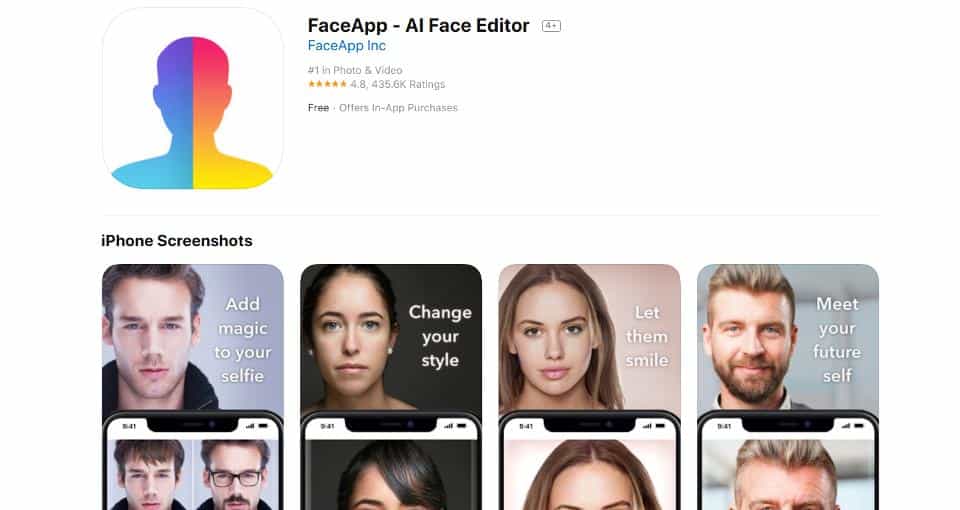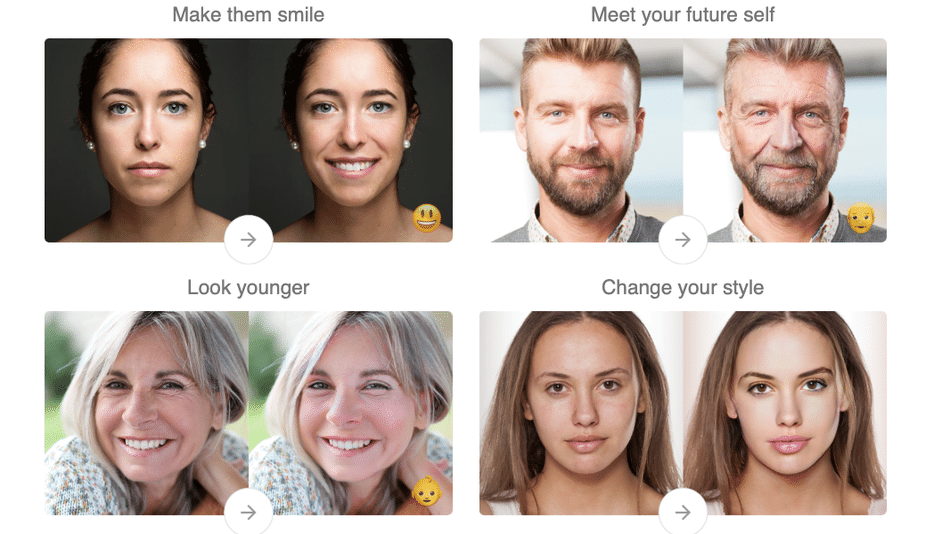If you have been on Instagram or Twitter recently, you may have seen a new trend of people suddenly turning into 80 years old. Well, it is done using a Russian photo-editing application called FaceApp, which allows a user to submit a photo of their face and be shown an elderly version of themselves.
ALSO READ: Amazon Saves Your Alexa Recording Until You Delete Them; Here’s How To!
The fun aside, the privacy policy of FaceApp is quite concerning. The FaceApp uploads photos to its servers and “the age effects are crunched by the AI there, off your device.” However, it “does not alert the user that their photo has been uploaded to the cloud, nor does it specify in its policies if the company retains your original photo.”
FaceApp’s Background
The app has been around since January 2017 and has always offered the option to make yourself look old and over the time it has gotten better at it. It has always sent photos off of users’ phone to a remote server where the AI crunching is done to give out the results.

FaceApp is not the first app to upload photo’s to its servers, Snapchat also uploads photos to its own servers, although, after a long trail of questions over the years, it explained that it deletes them after processing. Mind you, there are other apps with similar capabilities that can run locally on your phone without sending photos to a remote server, like Facebook.
ALSO READ: Project Alias Feeds Smart Speakers White Noise To Safeguard User Privacy
FaceApp’s Privacy Concerns
The privacy concern has generated a huge outrage among people who have used the app. Many users uploaded a screenshot of a section of FaceApp’s terms of service.
You grant FaceApp a perpetual, irrevocable, nonexclusive, royalty-free, worldwide, fully-paid, transferable sub-licensable license to use, reproduce, modify, adapt, publish, translate, create derivative works from, distribute, publicly perform and display your User Content and any name, username or likeness provided in connection with your User Content in all media formats and channels now known or later developed, without compensation to you.
This, of course, sounds bad, especially when you have already uploaded your photo. However, in an email exchange, FaceApp CEO Yaroslav Goncharov tried to clarify the concerns regarding the app.

1. What data does FaceApp take?
There was a rumor that FaceApp fetches not only the user-selected photo but the whole camera roll. However, according to its CEO, it is doesn’t. The app “only upload a photo selected by a user for editing.” The rest of your camera roll stays on your phone. A user can use FaceApp without giving it your name or email, and 99 percent of users do just that, he said.
2. How long does FaceApp hold on my data?
The app’s terms of service grant it a “perpetual” license to our photos. However, Goncharov said FaceApp deletes “most” of the photos from its servers after 48 hours, which is not new, and matte of fact, Snapchat does it too.
3. What exactly does FaceApp doing with my data?
Well, according to Goncharov, the app’s terms give it — and whoever might buy it or work with it in the future — the right to do whatever it wants, through an “irrevocable, nonexclusive, royalty-free, worldwide, fully-paid, transferrable sub-licensable license.”

4. Who has access to my FaceApp data?
FaceApp’s engineers are based in Russia, so our data is not transferred there. In addition to that, he said the company also doesn’t “sell or share any user data with any third parties” — aside, I pointed out, from what it shares with trackers from Facebook and AdMob. On the flip side, users in Russia may have their data stored in Russia.
5. How can I delete my FaceApp data?
Just deleting the app won’t get you rid of the photos of you FaceApp may have in the cloud. Goncharov, CEO, FaceApp said that the people can put in a request to delete all data from FaceApp’s servers, but the process is complex.
“For the fastest processing, we recommend sending the requests from the FaceApp mobile app using ‘Settings->Support->Report a bug’ with the word ‘Privacy’ in the subject line. We are working on the better UI for that,” he said.

FaceApp’s Privacy Concerns: Fun Fact
Snapchat struggled for years and when it introduced the gender-swap filter, the daily downloads shot up from 600,000 to between 1-2 million. Mind you, unlike FaceApp, Snapchat collects geographic information, contact, accesses private messages and photos too.
BONUS VIDEO
For the latest tech news, follow TechDipper on Twitter, Facebook, Google+, Instagram and subscribe to our YouTube channel.



